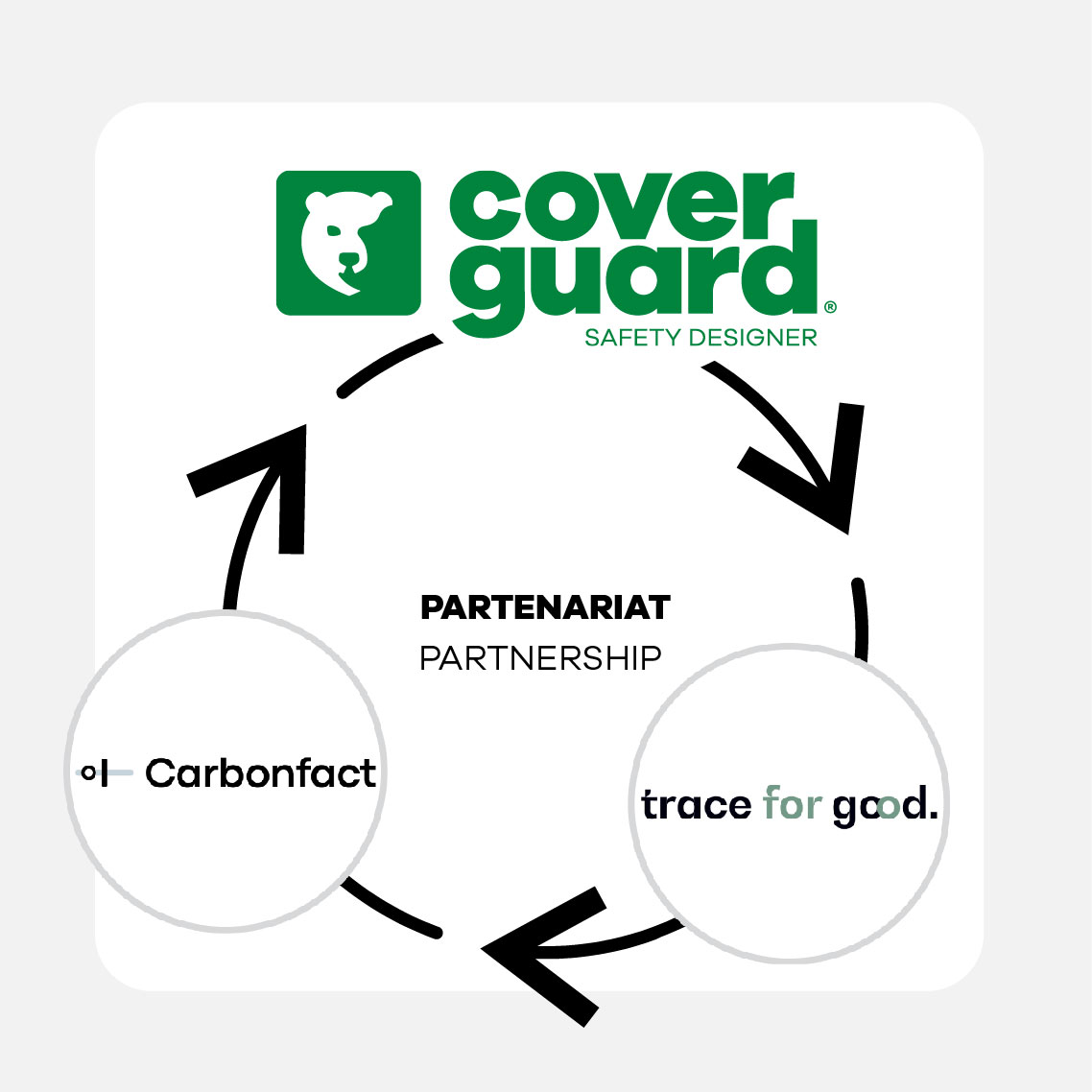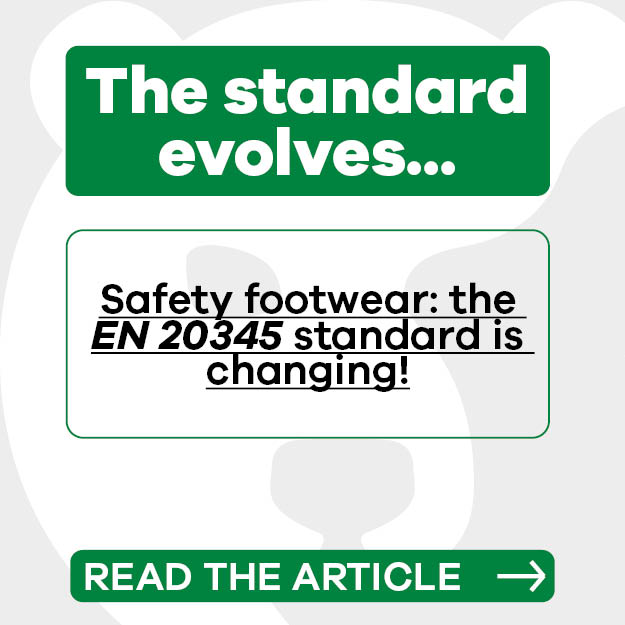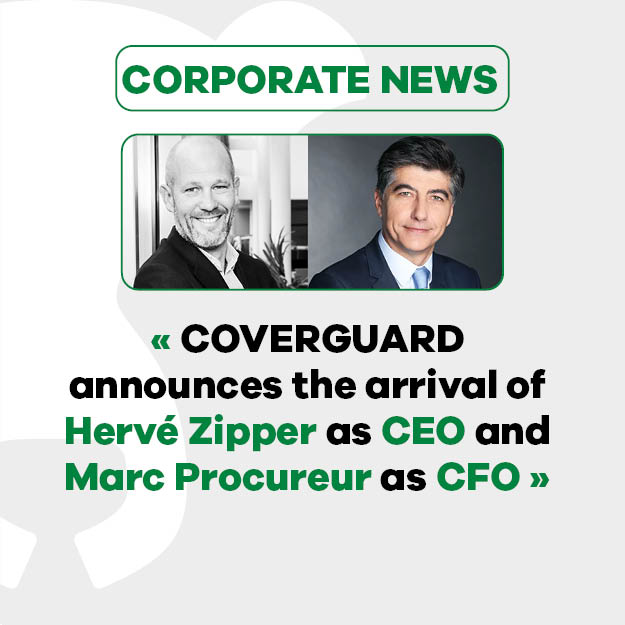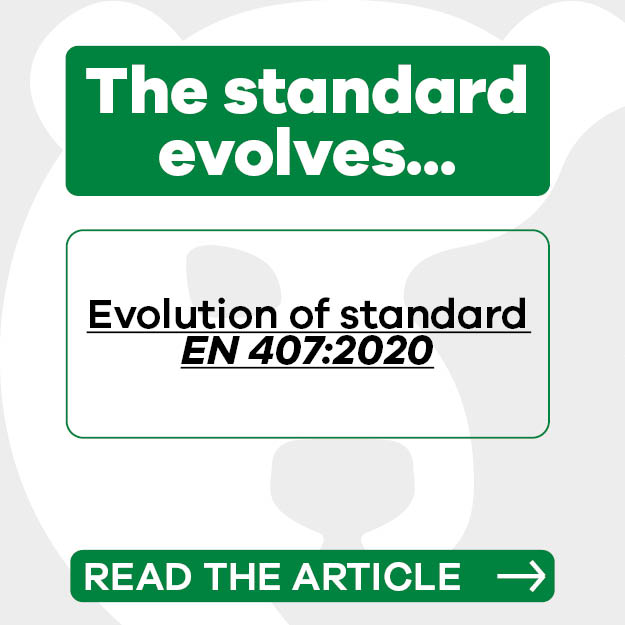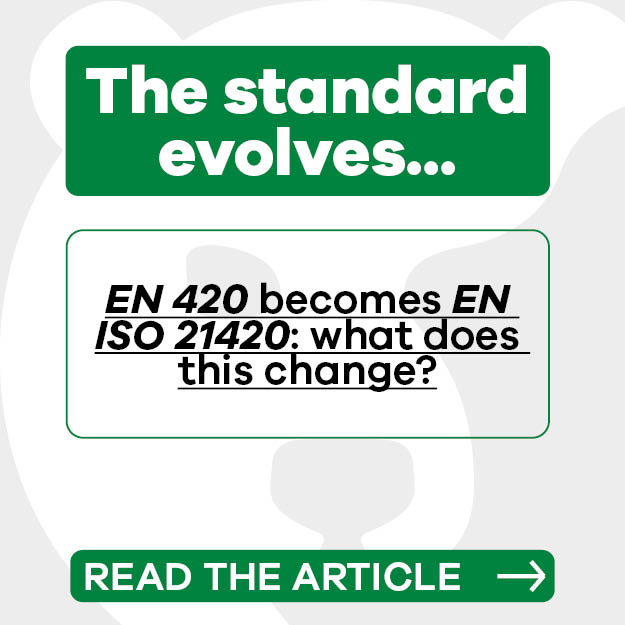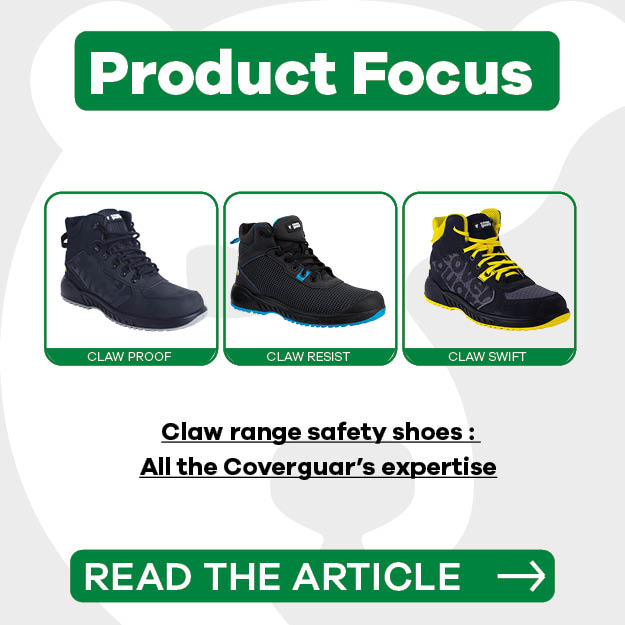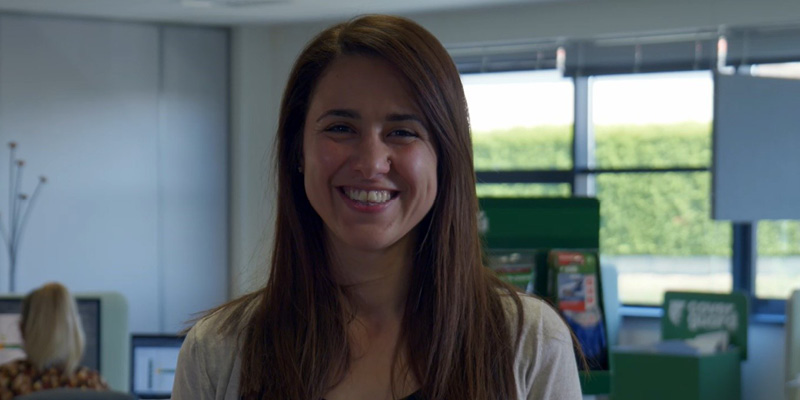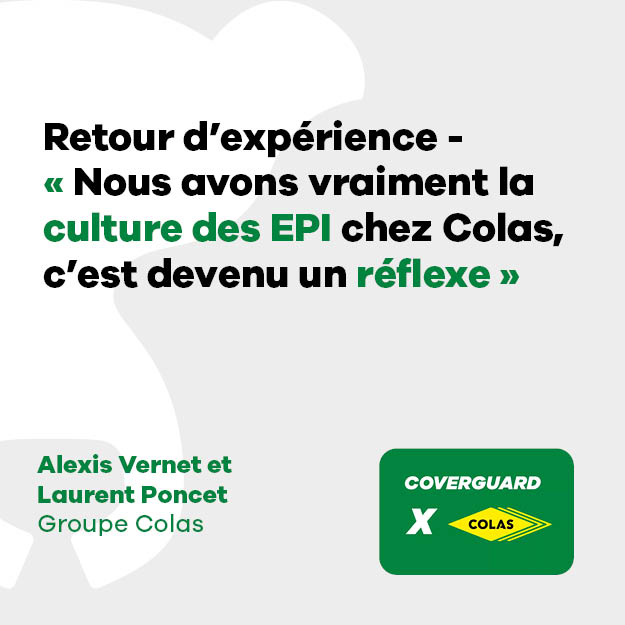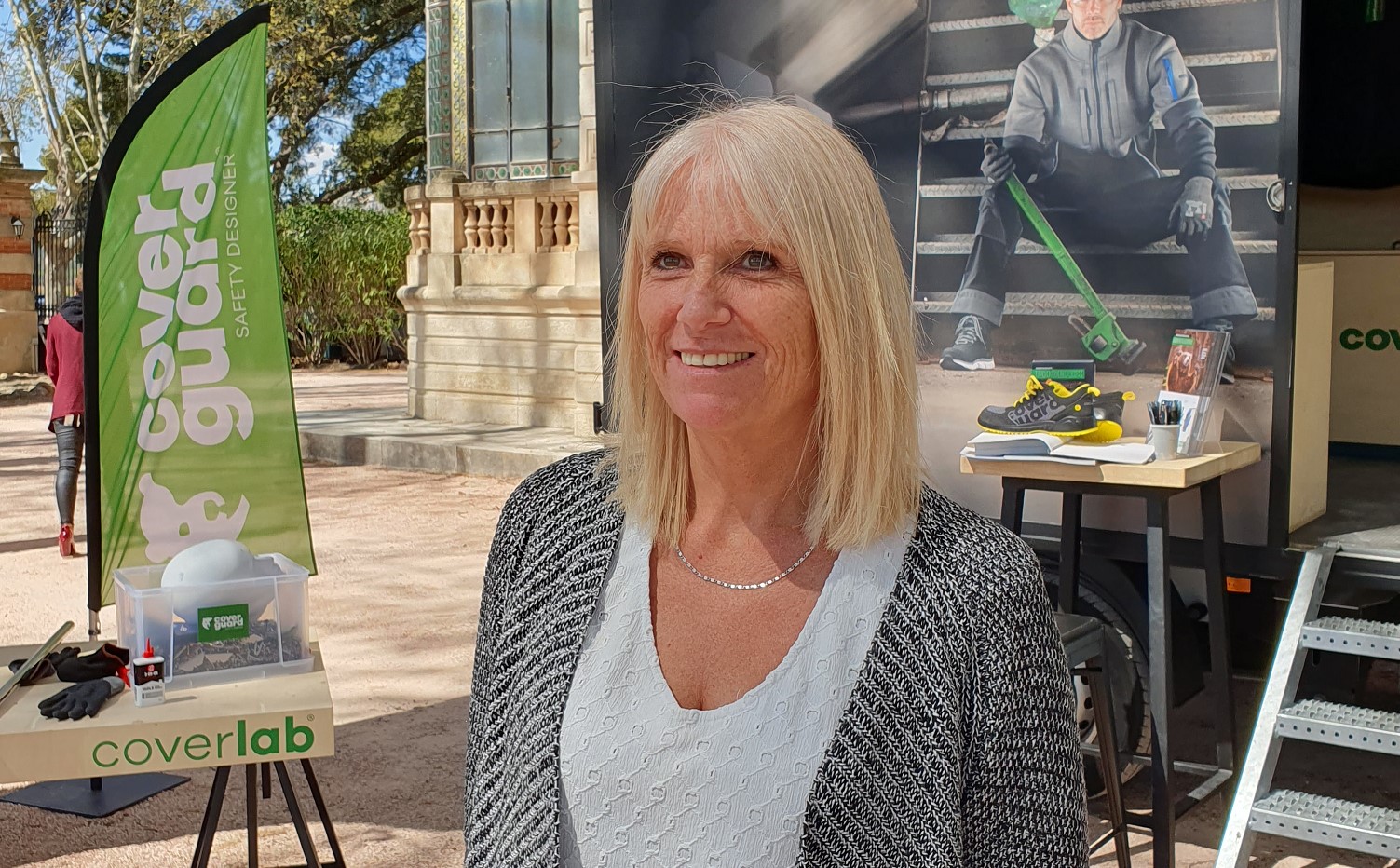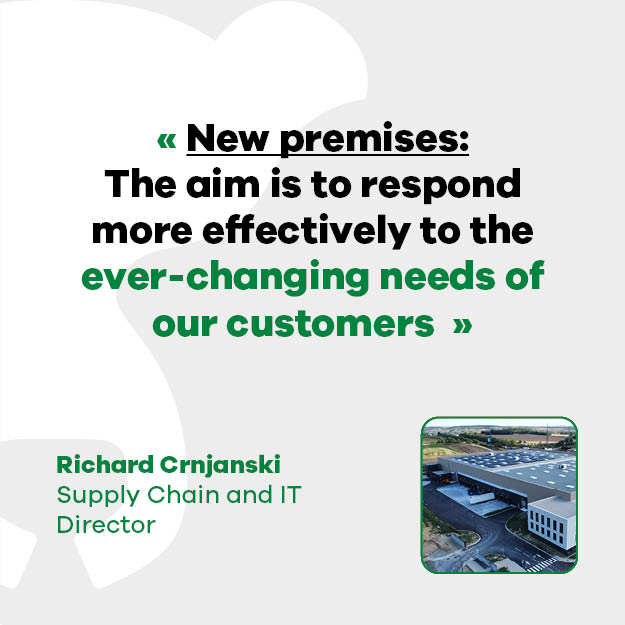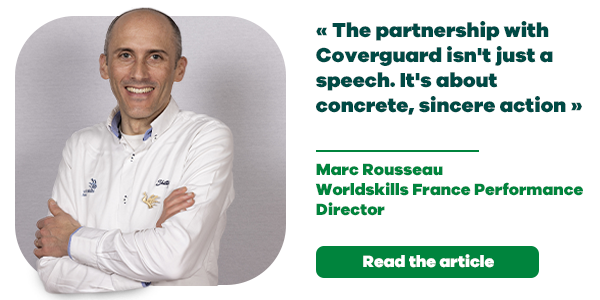Promotional operation "CLEARANCE"
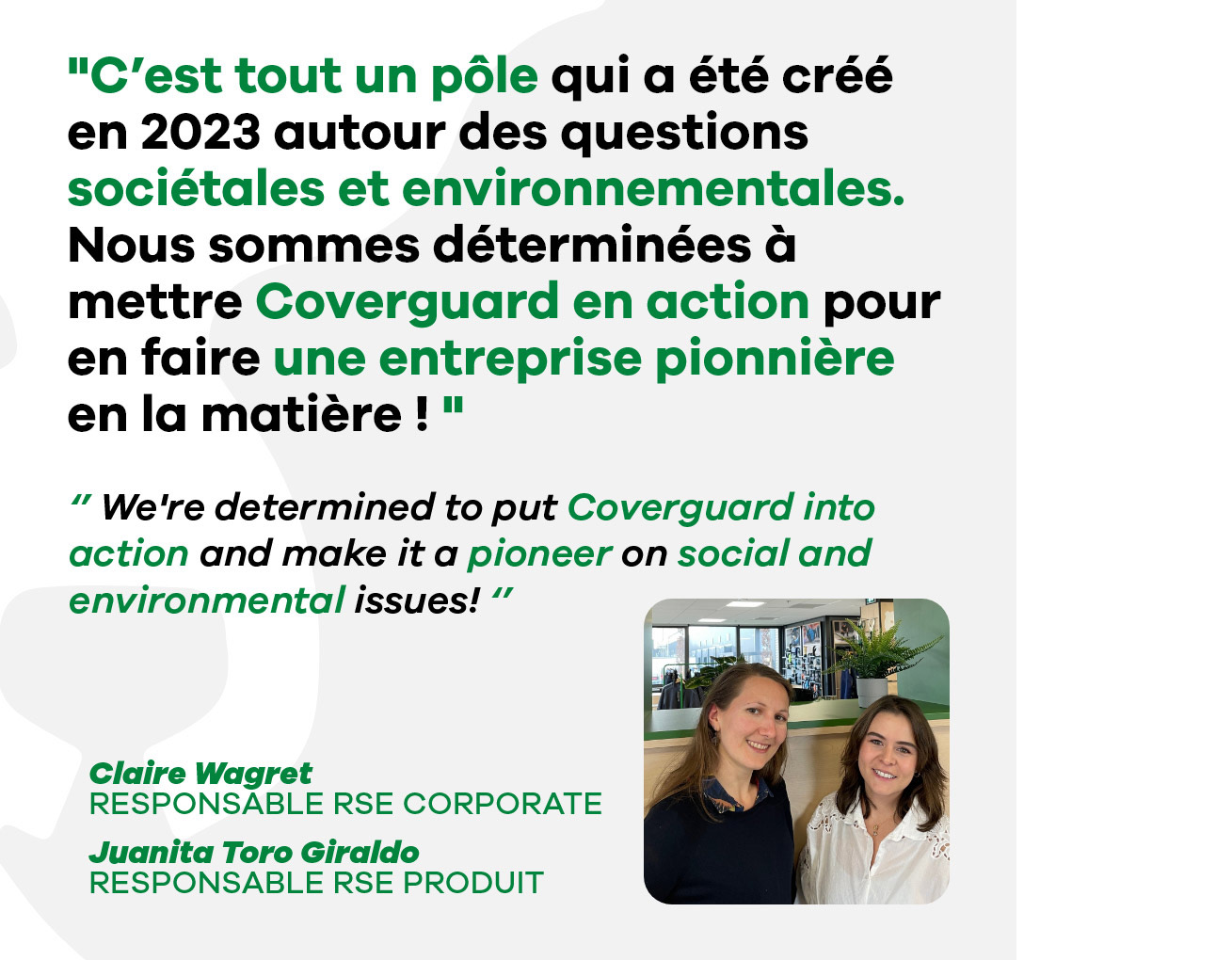
CSR at the heart of Coverguard's transformation project
CSR at the heart of Coverguard's transformation project
In 2023, Coverguard stepped up a gear with its CSR policy : responsibility, one of the company's three founding values, is fully in line with societal and environmental issues. In terms of internal organisation, a division was created in 2023 around two experts: Juanita Toro Giraldo, Head of Product CSR, and Claire Wagret, Head of Corporate CSR. Meet these two women, who are determined to put words into action and make Coverguard a pioneer in this field!
Coverguard's commitment to Corporate Social Responsibility dates back to 2019. What actions have been taken until now ?
Claire Wagret: In 2019, Coverguard benefited from initial support from AFNOR, which drew up an inventory and defined the directions to take. Next, internal working groups were launched on various themes such as the product, the environment, procurement and so on. The first carbon footprint audit was carried out in 2022. This was the context in which I was hired in 2022: to structure a global sustainable development strategy, based in particular around circular economy, transparency and reducing impacts.
Juanita Toro Giraldo: Things accelerated with the definition of the company's new values, of which responsibility is an integral part. And then the CSR team was created last November and integrated into the Direction of Category Management, which is also in charge of purchasing, products and Plantigrade – our transformation plan, of which CSR is one of the strategic axes. Which just goes to show how central this issue is for Coverguard!
Claire Wagret: Juanita and I have since then defined a strategy for 2030, both on the product side and the corporate side, with the ambition of being seen as the leader in CSR in the PPE market, with ecodesigned and quality products that have a reduced impact.
"We want to work specifically on the product".
Tell us what this CSR 2030 strategy is all about!
Claire Wagret: We have built it around 5 pillars. 4 had already been defined in 2021: the environment, responsible purchasing, people and sustainable partnerships. We have created a 5th pillar based on the circular economy, so that we can work specifically on products to avoid and then reduce their impact.
Juanita Toro Giraldo: We set up an internal working group to elaborate a concrete action plan in this area. As a result, at the end of 2023 we defined the 5 major circular economy projects for 2024.

"We want to measure, avoid and reduce our product-related impacts".
The 5 flagship projects for 2024 under the "Circular Economy" pillar include two actions, one on traceability and one on life cycle analysis of our products ...
Juanita Toro Giraldo: Yes, these projects should enable us to guarantee the origin of all our products. To achieve this, we have signed a partnership agreement with Trace for Good, a well-known player in the textile sector. Our ambition is not simply to comply with the law, we want to go further by also achieving traceability for all our PPE by 2030. This year, we will be starting with our work clothes, gloves and shoes.
We also have a partnership with the Carbonfact platform, which measures our greenhouse gas emissions and the life cycle analyses of our products. It works on many types of product, but not yet on all PPE. So the idea is to co-construct this life cycle analysis with them.
What are the year's 3 other projects?
Claire Wagret: We're working on the FREPI© project (“Filière de Recyclage des Équipements de Protection Individuels”, which can be translated to recycling of PPE), run by the ORÉE association and co-financed by ADEME. It will last a year and a half. The aim is to determine whether it is technically possible to recycle high-visibility PPE. A number of partners are working with us to finance the project and supply specialist laboratories with high-visibility PPE. We need to identify the technique to be used and check whether such a recycling process is financially viable in France. If it is, we can be proud of having been at the forefront of the process!
Juanita Toro Giraldo: We also aim to encourage the use of recycled materials in our products. We know from Carbonfact that replacing the main material with recycled material drastically reduces the environmental impact. We want to go further by certifying their origin with internationally recognised labels such as the Global Recycled Standard (GRS). As with traceability, we want to apply this project to all our PPE.
And then, the last project will enable us to work on our packaging. We need to be able to ask ourselves whether we really need packaging for a product. It's a highly visual element that has a huge impact on the brand. We'll need to rethink it along these lines too. These changes should take effect as early as 2025.
"From the end of 2024, we will be able to indicate the carbon impact of all textile products, gloves and footwear".
Other pillars of this CSR strategy are the environment, responsible purchasing, sustainable partnerships and working with employees. What actions will be launched ?
Claire Wagret: As far as the environment is concerned, we'll be taking stock of our greenhouse gas emissions at the beginning of 2025. For responsible purchasing, there's a supplier selection and ethical audit process, which is carried out regularly every 3 years. And then there's the Euromed project, which aims to bring our production sites closer together to facilitate trade and reduce delivery times.
The 'Sustainable Partnership' pillar is based on constant dialogue with all our stakeholders to better understand their interests, expectations and needs, with a view to being a better partner.
Finally, the people pillar aims to position us as a responsible employer and develop our employer brand.
"We sense that all our employees are very committed".
How do you feel this CSR 2030 strategy has been received, both within the company and externally ?
Claire Wagret: These are very ambitious projects, which will affect many levels of the company. We're making sure that we work hand in hand with the various departments, that we don't impose things but rather explain the approach and present the long-term benefits. We're very confident, and we feel that all our employees are very involved, and that they understand what's at stake in this new strategy.
Juanita Toro Giraldo: We see this particularly in our sales pitch. When we first started working on these issues, CSR wasn't discussed with customers. Today, it's starting to feature in meetings with our partners. It's also a key to developing the company. What's more, our customers are keen to have these discussions, and are delighted to be included in the process and to be able to express their needs and expectations in terms of the circular economy, for example. For us, CSR is closely linked to business. That's what's going to make the difference in the PPE market!
"Our CSR report shall be published in May 2024".
It's important to highlight all these actions ?
Juanita Toro Giraldo: Yes, the communications team is very involved with us. We're lucky enough to work on concrete, factual subjects that we can easily convey, without the risk of greenwashing. In fact, we don't rely on declarations but on scientifically proven elements: we can prove everything we say. This is why we have built partnerships with external platforms such as Trace for Good and Carbonfact, and certifications such as GRS and RCS, which are recognised in their various fields.
Claire Wagret: And then our CSR report should be published in May 2024. In it, we will present all our actions in a really concrete, precise and detailed way. To make it as intelligible as possible, we're doing a lot of rewording. We want CSR to appear accessible rather than off-putting. That's how we live it every day at Coverguard!













